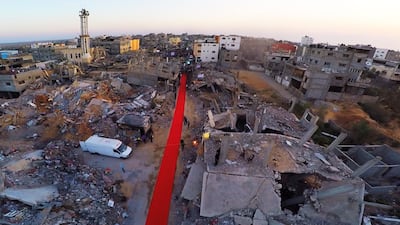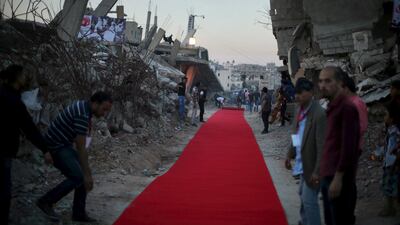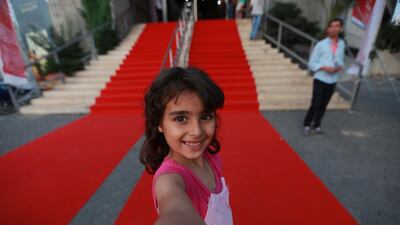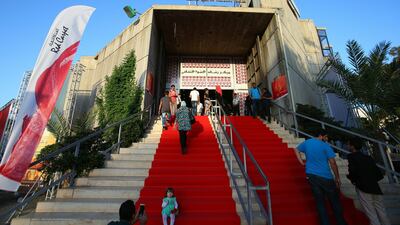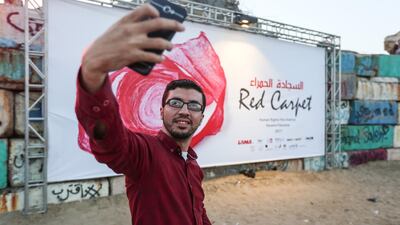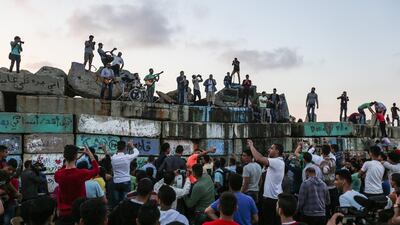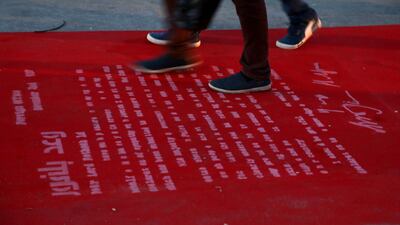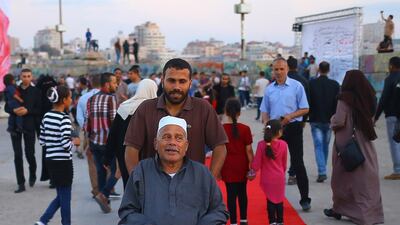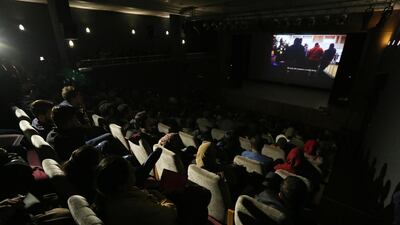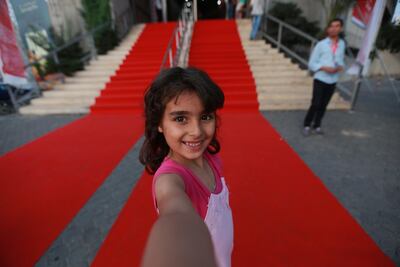When a 60-metre red carpet was rolled through the crumbling streets of the Al-Shujaiyeh area in eastern Gaza City for the first time, it stood for so much more than a film festival.
For many, it was the first time they’d seen anything related to film return to the streets for several decades, since violence closed the doors to the region’s cinemas during the First Intifada. For others, it was a bit of glitz and glam among the rubble. But for festival director Khalil al-Mozayen, it was the culmination of a life’s work finally realised.
“We stood there next to the destroyed mosque, surrounded by destroyed homes in every direction, and it became clear that it was the right place to hold a film festival focused on human rights.”
In subsequent years, the event was a highlight on the social calendar – but its fifth outing is now in jeopardy. "Conditions in Gaza are always difficult, but specifically this year, the economic crisis caused by the rift between Hamas and the Palestinian Authority is worsening day by day. Salaries are no longer paid to employees and almost all forms of support for cultural activities has stopped," he explains.
Al-Mozayen established the festival in 2015 as a way of reinvigorating the film industry in the war-torn area, after travelling abroad as a director to other international festivals. "I saw the red carpet and I walked on it and I instantly thought about the people of Gaza. I said to myself: 'Everyone in Gaza has the right to feel like you do when you walk down a red carpet to a big event … the right to feel that they are stars – like Hollywood stars.'
"So that day I decided that if I could establish a film festival in Gaza, I was going to call it the Red Carpet Film Festival. I thought that perhaps walking down the red carpet will make people, at least temporarily, forget about the horror of living under siege and under bombardment.
“Maybe they will even start believing that red is not only the colour of blood.”
How to become a filmmaker in Gaza – leave
Al-Mozayen's own foray into cinema began when he was just eight years old, back when there was a movie theatre in Gaza. "I was a student at the school and I was going to collect copper from the streets and sell it until I got enough money to buy a ticket to enter the cinema," he says.
He recounts the day when he was finally able to go inside the theatre, and heard screaming from outside. "My father did not know that I escaped from school to go to the cinema, and when he knew about that, he came there and quarrelled with the manager. Then my father broke in and started yelling and saying 'Khalil come here'. He turned on the lights, and I ran away from the back door."
Despite the harsh punishment awaiting him at home, he returned to the cinema again, only for the situation to be repeated (returning in secret and being found out), until the First Intifada began and the theatre was razed.
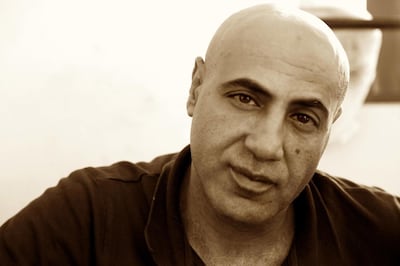
So instead, al-Mozayen decided to turn it into a career. He was working in Israel and managed to save $9,000 (Dh33,052) to go towards his course in cinema in Russia. He studied there for six years before returning to Gaza and taking a role at Palestine Television. He went on to dabble in filmmaking before establishing his company, Lama Films, which produced several movies and documentaries. "But unfortunately, in 2014, my company was destroyed during the war and I lost everything," al-Mozayen says.
That's when he turned his attention to a new film festival, one that Gaza hadn't seen before. "For years and years, I asked myself these questions: how can we possibly establish a film festival in a place that is besieged? How can such a festival be held in Gaza, when we do not even have a cinema or a proper theatre? The truth is, I could not find any answers.
"But after the 2014 war was over in Gaza, I visited the neighbourhood of Shujaiyeh, which had been completely destroyed and, seeing the devastation with my own eyes, I stopped asking myself unanswerable questions and instead decided to set off on a new path of implementation.
“When I told my dear colleagues we had to make this dream of having a film festival in Gaza come through, everyone agreed and we set to it.”
The legacy of Gaza's first film festival and how it went around the world
The first Red Carpet Human Rights Film Festival in Gaza launched in the Al-Shujaiyeh district in May 2015, with the aim of presenting short and long feature films, documentaries and animation films that shed light on local and global humanitarian issues. It was the first festival in Gaza to focus on human rights issues, and was held in co-operation with Karama Film Festival in Jordan.
The pictures of that solitary red carpet rolled out in the middle of the rubble and seeming despair of the destroyed neighbourhood quickly travelled around the world – covered by everyone from The Washington Post to The New York Times.
For al-Mozayen, that feedback, and the reported success of the festival’s inaugural event, meant everything. So too did the symbolism and reach of the red carpet. “Also the red carpet symbolises equality – that not only celebrities and high-profile personalities or politicians deserve to walk on red carpets, but also the people who witnessed the brutal war and experienced the loss of a family member or the imprisonment of another.”
The festival was held again in 2016, and every year until now. Al-Mozayen watched it take on new significance throughout the years, and its reach extend far further than he ever would have dreamt. It now has permanent membership of the Human Rights Film Network in Amsterdam and facilitated co-operations, with donors such as the Ministry of Culture and the Movies That Matter Film Festival, also in The Netherlands. But, "most importantly", it has "an increased demand for participation in the festival by directors from all over the world".
"The nice thing is that every year the audience was larger, and people were waiting for the announcement of the festival. I felt that the culture of cinema began to spread again in Palestine and this was the best thing that has happened to Palestinian cinema for decades," he says.
Could this year be the festival's last?
But it was to be short-lived. This year, organisers have hit a significant snag, and funding has threatened its future. So for now, al-Mozayen is appealing for donors or fund-raising partners in any way he can. "We are all extremely hopeful that the festival will continue, but we have run out of ways to stage it again in these harder-than-hard times.
"As a result of this, we are reaching out to anyone who can help us. We do not ask for such things easily as we are proud people, but the festival is important for Palestinian cinema and important for people. The festival would be such a loss to the people of Gaza if it was to be discontinued."
